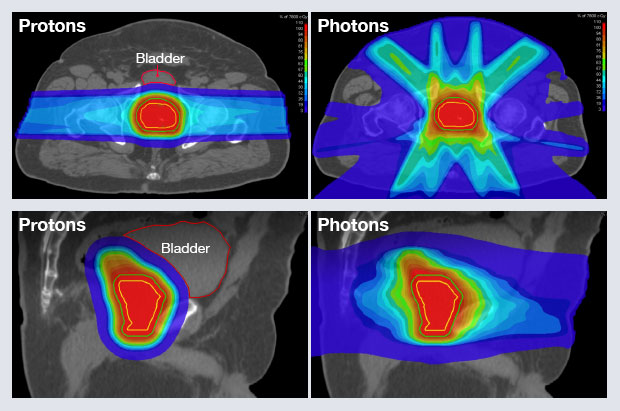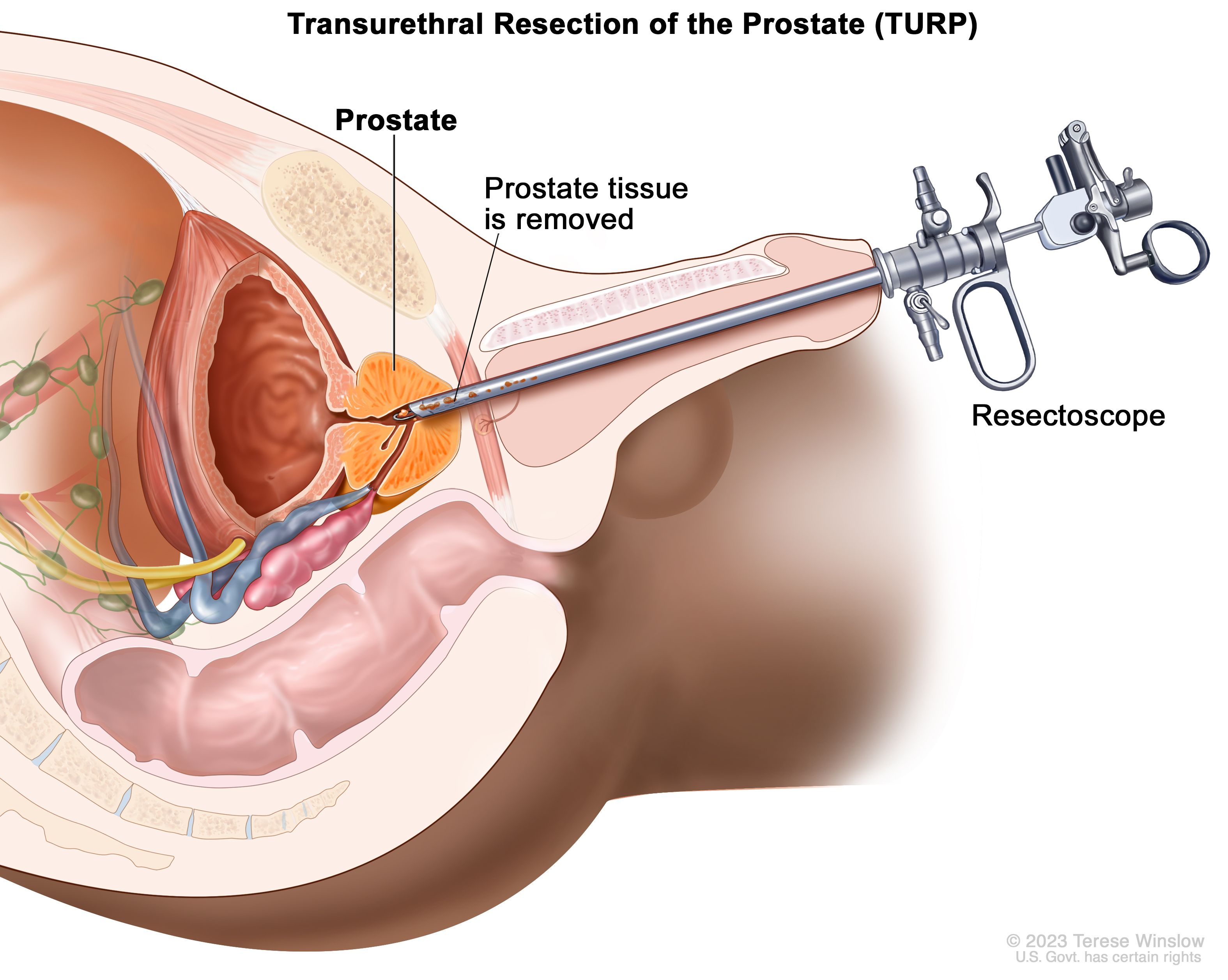Reliable Prostate Cancer Therapy Options for Men
Prostate cancer cells is a widespread problem among guys, with treatment options differing depending on the stage and aggression of the disease. While surgery stays a key treatment strategy, there are also alternate approaches such as radiation treatment, hormone treatment, and immunotherapy that have actually shown appealing outcomes. Furthermore, strategies like careful waiting and energetic monitoring are obtaining acknowledgment for their function in managing prostate cancer. Understanding the nuances of these treatment alternatives and their effectiveness is crucial for making informed choices concerning one's health and well-being.
Surgical Treatment as Therapy Choice
Surgical treatment stands as a main treatment choice for prostate cancer people in instances where the condition is localized and surgical treatment is regarded ideal by the health care group. Prostate cancer surgical procedure intends to eliminate the malignant tissue from the prostate gland, either partially (prostatectomy) or completely (radical prostatectomy) The choice to decide for surgical treatment is commonly based upon various variables, including the phase of cancer, the individual's general health, and prospective side results.
One typical medical technique is robotic-assisted laparoscopic prostatectomy, which supplies precision and very little invasiveness compared to traditional open surgical treatment. This strategy uses robot arms controlled by the cosmetic surgeon to remove the prostate gland with boosted mastery and visualization.
While surgical procedure can be effective in removing localized prostate cancer, it might involve risks such as urinary incontinence and impotence. People thinking about surgery should take part in extensive conversations with their health care carriers to consider the benefits and prospective disadvantages of this treatment option.
Radiation Treatment for Prostate Cancer
Having actually checked out the duty of surgical treatment in dealing with localized prostate cancer cells, the emphasis now changes to reviewing radiation treatment as one more important treatment modality for this condition. Radiation treatment utilizes high-energy rays to damage and target cancer cells in the prostate gland. There are 2 key kinds of radiation treatment frequently utilized for prostate cancer cells: exterior beam of light radiation and brachytherapy.
External light beam radiation includes routing radiation from a device outside the body towards the prostate. On the various other hand, brachytherapy involves positioning contaminated seeds straight into the prostate, supplying radiation from within.
Radiation therapy can be a standalone treatment for localized prostate cancer or made use of in mix with other treatments, such as surgical procedure or hormone therapy, depending on the stage and aggression of the cancer. best prostate cancer doctor. Common adverse effects of radiation therapy may include exhaustion, urinary problems, and bowel issues, which are generally short-term and can be managed properly
Hormone Therapy in Prostate Cancer
Hormonal agent therapy is a vital therapy technique in managing prostate cancer, especially in instances where the cancer has actually spread out past the prostate gland. Prostate cancer cells often rely upon male hormonal agents, such as testosterone, to grow. Hormone therapy, also referred to as androgen starvation treatment, aims to either minimize the manufacturing of these hormonal agents in the body or obstruct their results on the cancer cells.
There are different types of hormone therapy readily available for prostate cancer treatment. One common strategy is the usage of medications called LHRH antagonists and agonists, which function by reducing testosterone degrees. One more choice is anti-androgens, which block the activity of androgens on the cancer cells. Some males might take advantage of a combination of these therapies to effectively take care of the cancer.
Hormone treatment can help decrease the progression of prostate cancer, alleviate signs, and boost lifestyle. Nevertheless, it is not a medicinal treatment and may come with side results such as hot flashes, exhaustion, and loss of libido. Routine monitoring and discussions with healthcare companies are vital to manage the impacts of hormone treatment effectively
Immunotherapy for Prostate Cancer
Immunotherapy has actually emerged as an encouraging treatment method for prostate cancer cells, providing brand-new methods for Best prostate cancer hospital in India combating the condition. Unlike standard treatments like surgical procedure or radiation, which straight target cancer cells, immunotherapy jobs by taking advantage of the body's immune system to attack and identify cancer cells.
One form of immunotherapy being discovered for prostate cancer cells is checkpoint preventions. These medicines target proteins that stop the immune system from identifying and assaulting cancer cells. By blocking these healthy proteins, checkpoint inhibitors can improve the immune action against prostate cancer cells.
One more strategy entails restorative injections, which stimulate the immune system to target certain antigens found on prostate cancer cells. These injections can aid the immune system determine and damage cancer cells better.


Watchful Waiting and Active Surveillance
In the world of prostate cancer administration, specifically for instances where aggressive treatment might not be right away necessary, the strategy of careful waiting and energetic security plays a substantial function. Careful waiting involves keeping track of the cancer without instant treatment, intervening only if the cancer cells shows indicators of development. This technique is frequently taken into consideration for older individuals with slow-growing lumps or those with numerous health and wellness issues where the threats of therapy may surpass the benefits.
Energetic surveillance, on the various other hand, includes regular tracking with PSA examinations, digital rectal exams, and regular biopsies. It is generally advised for people with low-risk prostate cancer cells to carefully track any kind of changes in the cancer cells's habits. Therapy options can be reassessed. if there are indications of the cancer coming to be much more hostile.
Both careful waiting and active surveillance goal to stay clear of unnecessary treatments and their possible adverse effects, such as urinary incontinence and impotence, while making certain prompt intervention if the cancer advances. These techniques give a balance between handling the cancer cells successfully and preserving the patient's lifestyle.
Final Thought

Prostate cancer surgery intends to eliminate the malignant tissue from the prostate gland, either partly (prostatectomy) or completely (extreme prostatectomy)Having actually explored the duty of surgical treatment in treating local prostate cancer cells, the emphasis now moves to discussing radiation therapy as another crucial treatment modality for this condition.Hormone treatment is a critical treatment approach in managing prostate cancer, specifically in cases where the cancer cells has actually spread beyond the prostate gland. Careful waiting entails monitoring the cancer without prompt therapy, stepping in only if the cancer reveals indicators of development. It is commonly recommended for individuals with low-risk prostate cancer cells to closely track any kind of modifications in the cancer cells's actions.
Comments on “Best Prostate Cancer Doctor - Questions”